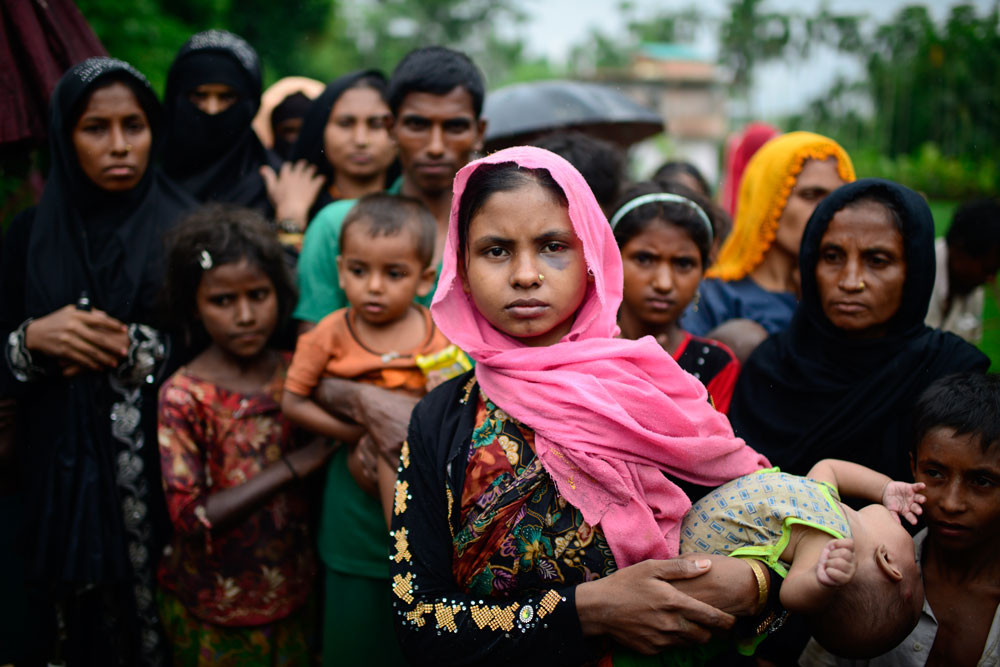They threw many children into the fire

![]()
News Desk
Despite the scale of their trauma, the mental health of the Rohingya is a rarely broached topic
Jafar, father of eight children, sells pickles outside the IOM health center at the Balukhali camp. His youngest child is just one year old. He has fathered three children since coming to this camp. His five-year-old child led us to their home, where we spoke with Jafar’s wife. Their eldest son had recently gotten married and his bride was pregnant with their child.
Another pregnant woman from the neighbouring house joined the conversation. She was due to give birth to their second child. She fled from Myanmar with her first child at the time of pregnancy.
According to the calculations of the government and the United Nations refugee agency, the number of Rohingya refugees is 9,50,000. Among them 52% are women and the average number of family members is 4.5. Although these women try to maintain their physical health, neither they nor their families know why mental health is also important.
In October and November of 2022, three focus groups discussed mental health-related issues twice in Ukhiya camp 9, camp 8I, and camp 8W, but there was no concept related to mental health among them. However, each of them spend their day tackling various types of frustration and in some cases the frustration is so deep that they even thought about suicide. Some people have survived from that attempt. In the camp, people say that even though many have committed suicide, it has not been recorded as such. No one wanted to know the exact number of pregnant women currently in the three camps. Ten out of 15 pregnant women are currently husbandless in the camps. Those interviewed can’t even say whether they will come back or not.
A 5 months pregnant woman in Camp 8 said that her husband has not come home for the last two months. “I heard that he has married another in the neighbouring camp. Before this, he left me during the Corona period when the first child was in my womb and then returned after 11 months. I don’t find any meaning in my life now.”
Among 15 women interviewed, almost all of them have more than three children. Among them 73% are victims of physical abuse by their husbands. Just as 100% of these women want to return to Myanmar, similarly 100% also think that they will never return. None of them had ever sought psychiatric help or knew when to seek it. 80% of the women consider the camp life to be inhumane and 86% expressed various disappointments with life.